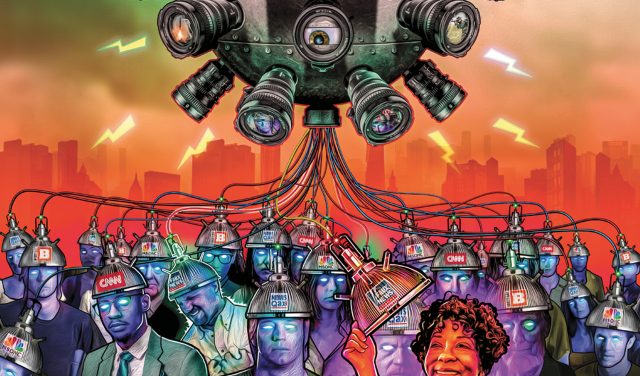
Since its founding in 1976, Project Censored has been focused on stories that aren’t censored in the authoritarian government sense, but in a broader sense reflective of what a functioning democracy should be, censorship defined as “the suppression of information, whether purposeful or not, by any method — including bias, omission, underreporting or self-censorship — that prevents the public from fully knowing what is happening in society.” It is, after all, the reason that journalism enjoys special protection in the First Amendment.
Despite the promise of boundless access to information, Silicon Valley mirrors legacy media in its consolidated ownership and privileging of elite narratives. This new class of billionaire oligarchs owns or controls the most popular media platforms, including the companies often referred to as FAANG — Facebook (Meta), Apple, Amazon, Netflix, and Google (Alphabet).
There are multiple patterns to be found in the list of Project Censored’s stories, and these different patterns have much to tell us about the forces shaping what remains hidden. But the dominance of billionaire control truly is remarkable. It shows how profoundly the concentration of corporate wealth and power in the hands of so few distorts everything we see — or don’t — in the world around us every day.
This piece has been edited for length.
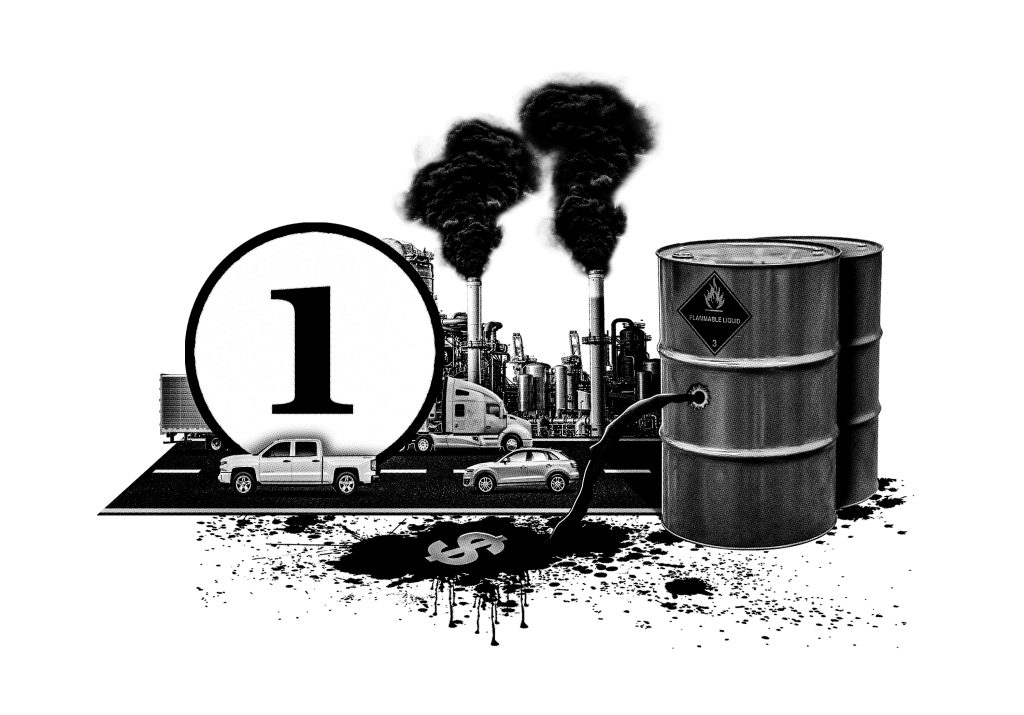
Fossil Fuel Industry Subsidized at Rate of $11 Million per Minute
Globally, the fossil fuel industry receives subsidies of $11 million per minute, primarily from lack of liability for the externalized health costs of deadly air pollution (42%), damages caused by extreme weather events (29%), and costs from traffic collisions and congestion (15%). And two-thirds of those subsidies come from just five countries: the United States, Russia, India, China and Japan. These are key findings from a study of 191 nations published by the International Monetary Fund, or IMF, in September 2021, that were reported in The Guardian and Treehugger the next month, but have been ignored in the corporate media.
No national government currently prices fossil fuels at what the IMF calls their “efficient price” — covering both their supply and environmental costs. “Instead, an estimated 99% of coal, 52% of road diesel, 47% of natural gas, and 18% of gasoline are priced at less than half their efficient price,” Project Censored notes.
“Efficient fuel pricing in 2025 would reduce global carbon dioxide emissions 36% below baseline levels, which is in line with keeping global warming to 1.5 degrees, while raising revenues worth 3.8% of global GDP and preventing 0.9 million local air pollution deaths,” the IMF report states. The G7 nations had previously agreed to scrap fossil fuel subsidies by 2025, but the IMF found that subsidies have increased in recent years, and will continue increasing.
“Eliminating fossil fuel subsidies could lead to higher energy prices and, ultimately, political protests and social unrest,” Project Censored notes. “But, as The Guardian and Treehugger each reported, the IMF recommended a ‘comprehensive strategy’ to protect consumers — especially low-income households — impacted by rising energy costs, and workers in displaced industries.”
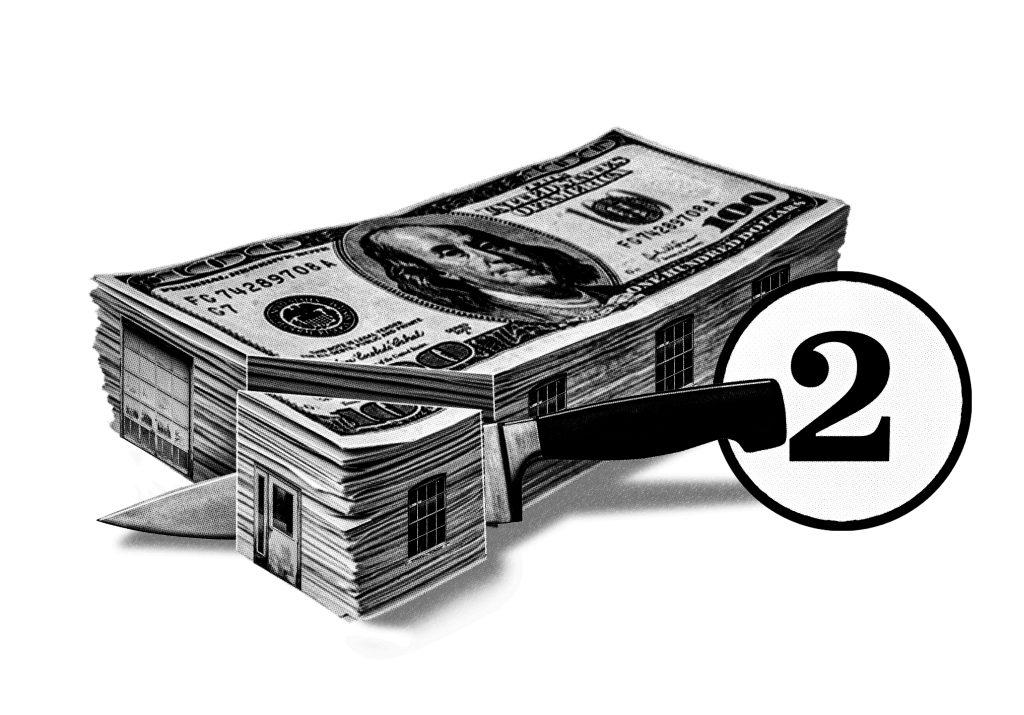
Wage Theft: U.S. Businesses Suffer Few Consequences for Stealing Millions from Workers Every Year
In 2017, the Economic Policy Institute released a study saying that just one form of wage theft — minimum wage violations — costs U.S. workers an estimated $15 billion annually, impacting some 17% of low-wage workers.
One reason it’s so rampant is that companies are seldom punished, as Alexia Fernández Campbell and Joe Yerardi reported for the Center for Public Integrity in May 2021, drawing on 15 years of data from the U.S. Department of Labor’s Wage and Hour Division. “The agency fined only about one in four repeat offenders during that period. And it ordered those companies to pay workers cash damages — penalty money in addition to back wages — in just 14% of those cases,” they wrote. In addition, “The division often lets businesses avoid repaying their employees all the money they’re owed. In all, the agency has let more than 16,000 employers get away with not paying $20.3 million in back wages since 2005.”
We’re talking about some major companies: Halliburton, G4S Wackenhut and Circle K Stores were among “the worst offenders,” they reported.
“Wage theft includes a range of illegal practices, such as paying less than minimum wage, withholding tips, not paying overtime, or requiring workers to work through breaks or off the clock. It impacts service workers, low-income workers, immigrant and guest workers, and communities of color the most,” Project Censored explains.
Wage theft also includes worker misclassification as independent contractors — long the case with port truckers, and more recently gig workers.
Lack of resources is largely to blame for the lax enforcement, Project Censored explains: “As of February 2021, the Wage and Hour Division employed only 787 investigators, a proportion of just one investigator per 182,000 workers covered by the Fair Labor Standards Act. For comparison, in 1948, the division employed one investigator per 22,600 workers, or eight times the current proportion.”
Project Censored notes that the Wage Theft Prevention and Wage Recovery Act of 2022, if passed, would amend the Fair Labor Standards Act to protect workers from wage theft.

EPA Withheld Reports on Dangerous Chemicals
In January 2019, the Environmental Protection Agency, or EPA, stopped releasing legally required disclosures about chemicals that present a “substantial risk of injury to health or the environment.” They had previously been posted in a searchable public database called ChemView.
In November 2021, The Intercept’s Sharon Lerner reported the EPA had received “at least 1,240 substantial risk reports since January 2019, but only one was publicly available. The suppressed reports documented “the risk of chemicals’ serious harms, including eye corrosion, damage to the brain and nervous system, chronic toxicity to honeybees, and cancer in both people and animals,” Lerner wrote.
“The reports include notifications about highly toxic polyfluoroalkyl substances, or PFAS, chemical compounds that are known as ‘forever chemicals’ because they build up in our bodies and never break down in the environment,” Project Censored notes. “The Environmental Working Group explains that ‘very small doses of PFAS have been linked to cancer, reproductive and immune system harm, and other diseases. For decades, chemical companies covered up evidence of PFAS’ health hazards.’”
It wasn’t just the public that was kept in the dark, Lerner reported: “The substantial risk reports have not been uploaded to the databases used most often by risk assessors searching for information about chemicals, according [to] one of the EPA scientists… They have been entered only into an internal database that is difficult to access and search. As a result, little — and perhaps none — of the information about these serious risks to health and the environment has been incorporated into the chemical assessments completed during this period.”
In January 2022, Public Employees for Environmental Responsibility filed a lawsuit to compel EPA to disclose the reports, following up on an earlier public records request which, the National Law Review reported, was “built upon information reported in a November 2021 article in The Intercept.” Just weeks later, EPA announced it would resume posting the reports in ChemView.
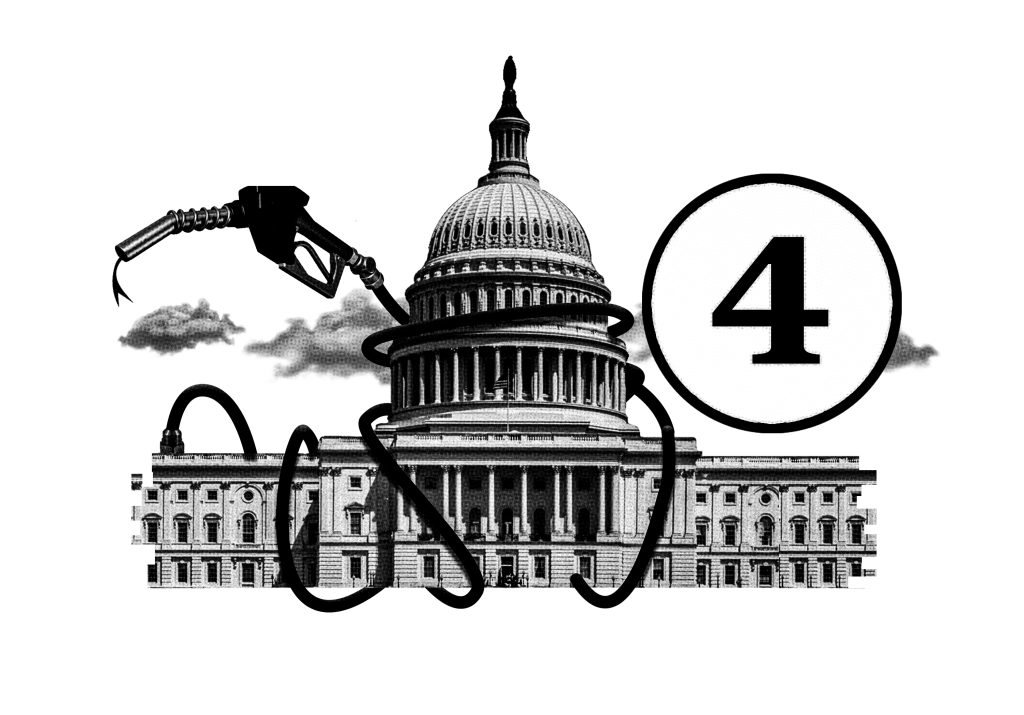
At Least 128 Members of Congress Invested in Fossil Fuel Industry
At least 100 U.S. representatives and 28 U.S. senators have financial interests in the fossil fuel industry.
In November and December of 2021, Davie Moore reported in Sludge that 74 Republicans, 59 Democrats, and one independent have fossil fuel industry investments, with Republicans outnumbering Democrats in both chambers. The top ten House investors are all Republicans. But it’s quite different in the Senate, where two of the top three investors are Democrats, and Democrats’ total investments, $8,604,000, are more than double the Senate Republicans’ total of $3,994,126. Topping the list is Joe Manchin (West Virginia), with up to $5.5 million of fossil fuel industry assets, while John Hickenlooper (Colorado) is third, with up to $1 million.
“Most significantly, many hold key seats on influential energy-related committees,” Project Censored notes. Senators include Manchin, chair of the Energy and Natural Resources Committee, Tina Smith (D-MN), chair of the Agriculture Subcommittee on Rural Development and Energy, and Tom Carper (D-DE), chair of the Committee on the Environment and Public Works.
In the House, Project Censored explains, “nine of the 22 Republican members of the Energy and Commerce Committee are invested in the fossil fuel industry.

Dark Money Interference in U.S. Politics Undermines Democracy
The same group of conservative dark money organizations that opposed President Joe Biden’s
Supreme Court nomination — Judicial Crisis Network [JCN], The 85 Fund and their affiliated groups — also funded entities that played a role in the Jan. 6 insurrection, according to a report by the watchdog group Accountable.US. They’re closely linked to Leonard Leo, co-chair of the Federalist Society, with money coming from Donors Trust (a dark-money group backed by the Koch network) and the Bradley Foundation.
“These dark money groups not only funded Leo’s network of organizations to the sum of over $52 million in 2020, but also funded entities in 2020 that played a role in the insurrection to the sum of over $37 million,” Accountable.US reported.
While there has been coverage of dark money spending on Supreme Court nominations, Igor Derysh at Salon was alone in reporting the related involvement in Jan. 6.
Just one group, JCN, spent $2.5 million “before Biden even named his nominee” Ketanji Brown Jackson, Derysh reported, “accusing Biden of caving in to leftists by promising a ‘Supreme Court nominee who will be a liberal activist.’” On the other hand, “JCN spent tens of millions helping to confirm Justices Neil Gorsuch and Brett Kavanaugh, according to Open Secrets, and launched a $25 million effort to confirm Justice Amy Coney Barrett just weeks before the 2020 election.”
More disturbingly, “Donors Trust has funneled more than $28 million to groups that pushed election lies or in some way funded the rally ahead of the Capitol riot,” while “members of the Federalist Society played key roles in Donald Trump’s attempts to overturn the election,” including attorney (and former visiting CU professor) John Eastman, architect of Trump’s plan to get Vice President Mike Pence to overturn the election, Sens. Josh Hawley (R-MO) and Ted Cruz (R-TX), who led the objections to the certification of Trump’s loss after the riot, and Texas Attorney General Ken Paxton, who filed a lawsuit to throw out election results in key states, effectively overturning Biden’s victory. In addition, 13 of the 17 other Republican attorneys general who joined Paxton’s suit were also Federalist Society members.
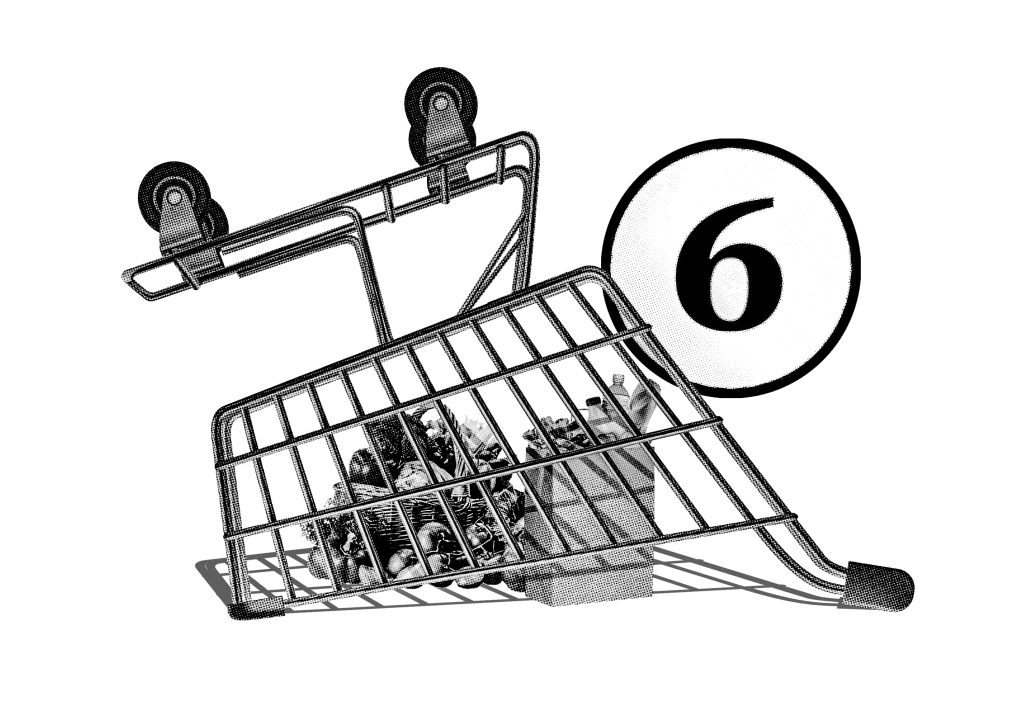
Corporate Consolidation Causing Record Inflation in Food Prices
As Food and Water Watch reported in Nov 2021, “while the cost of meat shot up, prices paid to farmers actually declined, spurring a federal investigation.” That investigation is ongoing, but meat conglomerates Tyson Foods, Perdue Farms, Smithfield Foods and JBS have paid over $225 million to settle related civil suits in the poultry, beef and pork markets.
That’s just part of the problem. A July 2021 joint investigation by Food and Water Watch and The Guardian reported “a handful of ‘food giants’ — including Kraft Heinz, General Mills, Conagra, Unilever and Del Monte — control an average of 64% of sales of 61 popular grocery items,” Project Censored notes. Three companies own 93% of carbonated soft drink brands; while another three produce 73% of the cereals on offer, and a single company, PepsiCo, owns five of the most popular dip brands — 88% of the market. Altogether, “four firms or fewer controlled at least 50% of the market for 79% of the groceries,” The Guardian reported.
It’s not just producers: “In an October 2021 article for Common Dreams, Kenny Stancil documents that food producers, distributors, and grocery store chains are engaging in pandemic profiteering and taking advantage of “decades of consolidation, which has given a handful of corporations an ever-greater degree of market control and with it, the power to set prices,” according to research by the Groundwork Collaborative.
As for grocers, “Kroger, the largest supermarket chain in the country, cited rising inflation as the reason for hiking prices in their stores even as they cut worker pay by 8%” in 2020, Project Censored notes. Kroger’s CEO earned 909 times what the median worker earned, and “the company spent $1.498 billion on stock buybacks between April 2020 and July 2021 to enrich its shareholders,” the Groundwork Collaborative reported.
“One of the most common inflation scapegoats, supply chain problems, is itself a consequence of consolidation,” Project Censored notes. “Just three global alliances of ocean shippers are responsible for 80% of all cargo… These shippers raked in “nearly $80 billion in the first three quarters of 2021, twice as much as in the entire 10-year period from 2010 to 2020,” by increasing their rates as much as tenfold.
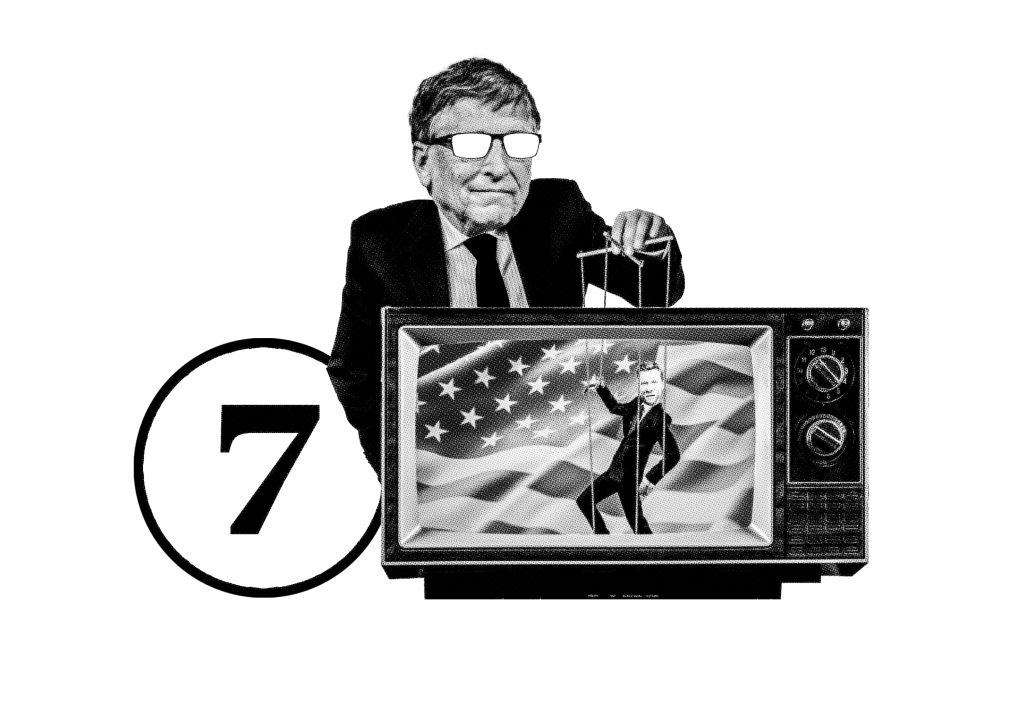
Concerns for Journalistic Independence as Gates Foundation Gives $319 Million to News Outlets
In November 2021, for MintPress News, Alan MacLeod examined more than 30,000 individual grants from the the Bill and Melinda Gates Foundation and found it had donated “more than $319 million to fund news outlets, journalism centers and training programs, press associations, and specific media campaigns, raising questions about conflicts of interest and journalistic independence,” Project Censored notes.
“Recipients of this cash include many of America’s most important news outlets, including CNN, NBC, NPR, PBS and The Atlantic. Gates also sponsors myriad influential foreign organizations, including the BBC, The Guardian, The Financial Times and The Daily Telegraph in the United Kingdom; prominent European newspapers such as Le Monde (France), Der Spiegel (Germany) and El País (Spain); as well as big global broadcasters like Al-Jazeera,” he reported.
“MacLeod’s report includes a number of Gates-funded news outlets that also regularly feature in Project Censored’s annual Top 25 story lists, such as the Solutions Journalism Network ($7.2m), The Conversation ($6.6m), the Bureau of Investigative Journalism ($1m), and ProPublica ($1m),” Project Censored notes. “Direct awards to news outlets often targeted specific issues, MacLeod reported. For example, one grant earmarked $2.3 million for the Texas Tribune ‘to increase public awareness and engagement of education reform issues in Texas.’ As MacLeod noted, given Bill Gates’ advocacy of the charter school movement — which undermines teachers’ unions and effectively aims to privatize the public education system — ‘a cynic might interpret this as planting pro-corporate charter school propaganda into the media, disguised as objective news reporting.’”
Missing from the figure were sub-grants and grants aimed at producing articles for academic journals.

CIA Discussed Plans to Kidnap or Kill Julian Assange
The CIA seriously considered plans to kidnap or assassinate WikiLeaks founder Julian Assange in late 2017, according to a September 2021 Yahoo News investigation, based on interviews with more than 30 former U.S. officials, eight of whom detailed U.S. plans to abduct Assange and three of whom described the development of plans to kill him. If it had been up to CIA Director Mike Pompeo, they almost certainly would have been acted on, after WikiLeaks announced it had obtained a massive tranche of files — dubbed “Vault 7” — from the CIA’s ultra-secret hacking division, and posted some of them online.
In his first public remarks as Donald Trump’s CIA director, “Pompeo devoted much of his speech to the threat posed by WikiLeaks,” Yahoo News noted. He even called it “a non-state hostile intelligence service often abetted by state actors like Russia,” a designation intended to grant the CIA wide latitude in what actions it took, while shielding it from congressional oversight.
“Potential scenarios proposed by the CIA and Trump administration officials included crashing into a Russian vehicle carrying Assange in order to grab him, shooting the tires of an airplane carrying Assange in order to prevent its takeoff, and engaging in a gun battle through the streets of London,” Project Censored writes.
“WikiLeaks was a complete obsession of Pompeo’s,” a former Trump administration national security official told Yahoo News.
There was also push-back from National Security Council, or NSC lawyers and the Department of Justice, which wanted to put Assange on trial. But the CIA continued to push for capturing or killing Assange. Trump’s “NSC lawyers were bulwarks against the CIA’s potentially illegal proposals, according to former officials,” Yahoo News reported, but the CIA’s own lawyers may have been kept in the dark. “When Pompeo took over, he cut the lawyers out of a lot of things,” a former senior intelligence community attorney told them. “Pompeo’s ready access to the Oval Office, where he would meet with Trump alone, exacerbated the lawyers’ fears. [The NSC’s top lawyer John] Eisenberg fretted that the CIA director was leaving those meetings with authorities or approvals signed by the president that Eisenberg knew nothing about, according to former officials.”
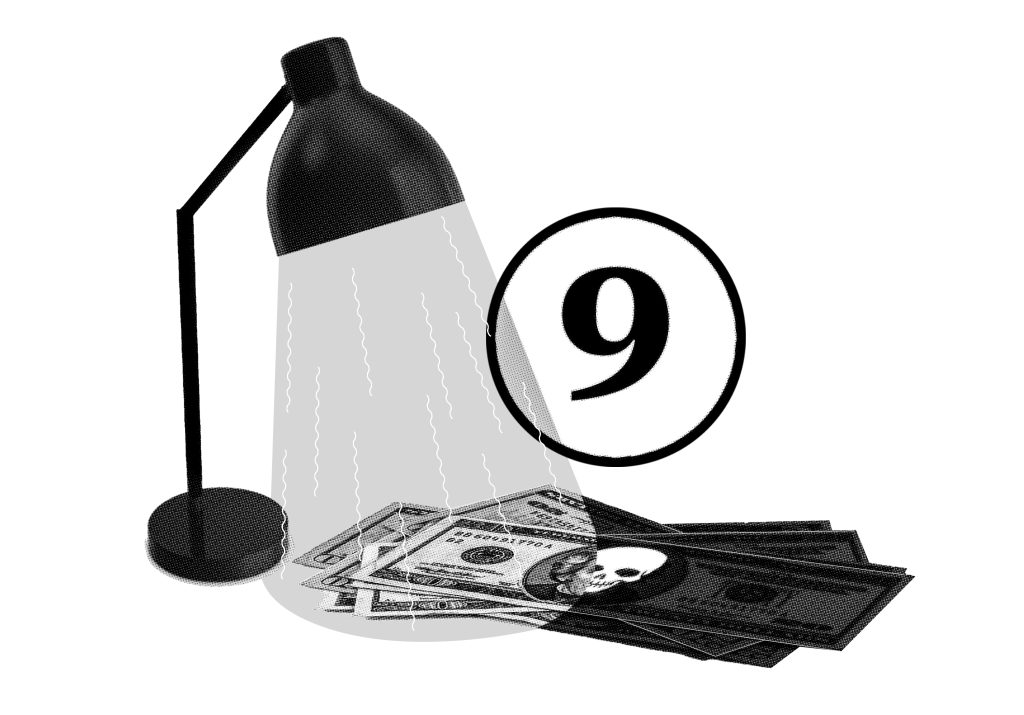
New Laws Preventing Dark Money Disclosures Sweep the Nation
Since the Supreme Court’s 2010 Citizens United decision relaxed campaign finance regulations, dark money spending has exploded, and now Republican lawmakers across the U.S. are pushing legislation to make it illegal to compel nonprofit organizations to disclose who the dark money donors are. Recently-passed laws in Arkansas, Arizona, Iowa, Oklahoma, Mississippi, South Dakota, Tennessee, Utah and West Virginia are based on model legislation from the American Legislative Exchange Council, or ALEC, which brings together corporate lobbyists and conservative lawmakers to advance special-interest, business-friendly legislation.
“ALEC is deeply enmeshed with the sprawling political influence networks tied to billionaire families like the Kochs and the Bradleys,” Donald Shaw reported for Sludge on June 15, 2021. “Penalties for violating the laws vary between the states, but in some states could include prison sentences.”
“Shaw explained how these bills create a loophole allowing wealthy individuals and groups to pass ‘dark money’ anonymously to 501(c) organizations, which can in turn make independent expenditures to influence elections (or contribute to other organizations that make independent political expenditures, such as Super PACs), effectively shielding the ultimate source of political funds from public scrutiny,” Project Censored summarizes.
There’s a federal impact as well. “In a March 2022 article for Sludge, Shaw documented that the federal omnibus appropriations bill for fiscal year 2022 contained a rider exempting political groups that declare themselves ‘social welfare organizations’ from reporting their donors, and another preventing the Securities and Exchange Commission from ‘requiring corporations to publicly disclose more of their political and lobbying spending,’” Project Censored notes.
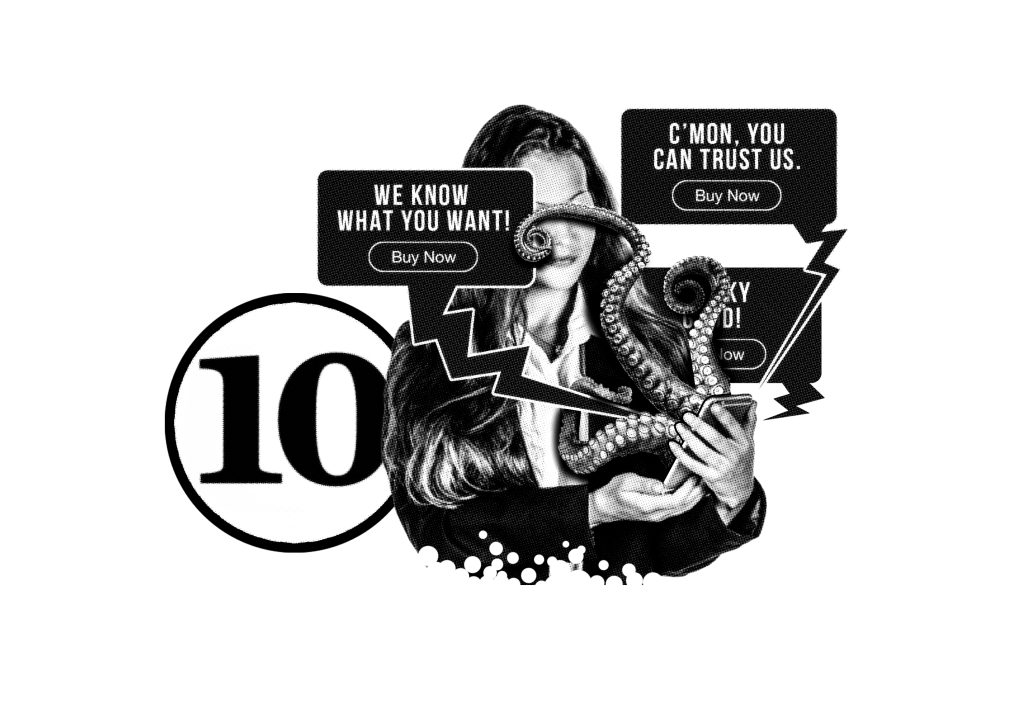
Major Media Outlets Lobby Against Regulation of “‘Surveillance Advertising’
“Surveillance advertising” — collecting users’ data to target them with tailored advertising — has become a ubiquitous, extremely profitable practice on the world’s most popular social media apps and platforms. But now, as Lee Fang reported for The Intercept in February 2022, the Biden administration’s Federal Trade Commission, or FTC, is seeking to regulate user data collection. Lobbyists for the Interactive Advertising Bureau, or IAB, are pushing back.
“In a letter, IAB called for the FTC to oppose a ban on data-driven advertising networks, claiming the modern media cannot exist without mass data collection,” Fang reported.
“The IAB represents both data brokers and online media outlets that depend on digital advertising, such as CNN, the New York Times, MSNBC, Time, U.S. News and World Report, the Washington Post, Vox, the Orlando Sentinel, Fox News, and dozens of other media companies,” Fang explained. “The lobbying reveals a tension that is rarely a center of the discourse around online privacy: Major media corporations increasingly rely on a vast ecosystem of privacy violations, even as the public relies on them to report on it.” As a result, “Major news outlets have remained mostly silent on the FTC’s current push and a parallel effort to ban surveillance advertising by the House and Senate by Rep. Anna Eshoo, D-Calif., and Sen. Cory Booker, D-N.J.,” Fang concluded.
“The IAB argues that targeted advertising — and, by extension, the siphoning of user data — has become necessary due to declining revenues from print sales and subscriptions,” Project Censored writes. “The personal information collected by online media is typically sold to aggregators, such as BlueKai (owned by Oracle) and OpenX, that exploit user data — including data describing minors — to create predictive models of users’ behavior, which are then sold to advertising agencies. The covert nature of surveillance advertising makes it difficult for users to opt out.” In addition, “The user information collected by media sites also enables direct manipulation of public perceptions of political issues, as famously happened when the British consulting firm Cambridge Analytica tapped into personal data from millions of Facebook users to craft campaign propaganda during the 2016 US presidential election.”
Paul Rosenberg is a Los Angeles, California-based writer, senior editor for Random Lengths News, and a columnist for Salon and Al Jazeera English. ©Random Lengths News, a division of Beacon Light Press, 2022














